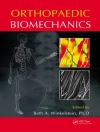<p><strong><em>A comprehensive review of surgical approaches and techniques for the posterior fossa</em></strong></p><p>The ability to operate successfully in the posterior fossa requires a thorough understanding of its neuroanatomy and physiology, accurate localization of lesions, and optimal surgical technique. <em>Principles of Posterior Fossa Surgery</em> provides an in-depth review of this complex surgical region, with detailed coverage of anatomy, pathology, imaging, disease-based management, and surgical approaches. Written by a team of highly respected specialists, it will be a valued reference and refresher for clinicians who perform posterior fossa surgery, as well as for trainees. </p><p><strong>Special Features:</strong></p><UL><LI>Begins with a useful framework in neuroimaging, neuropathology, and microsurgical anatomy of the posterior cranial fossa <LI>Covers a wide range of approaches and pathologies in the region, including congenital Chiari malformations, infections, trauma, aneurysms, and tumors <LI>Highlights the anatomy of common surgical approaches, with numerous radiographic and endoscopic images that aid in visualizing concepts <LI>Provides full coverage of surgical techniques, starting with basic concepts and progressing to operations on more challenging entities like petroclival meningiomas, jugular bulb tumors, acoustic neuromas, complex basilar aneurysms, and posterior circulation aneurysms <LI>Includes comprehensive sections on surgical management of pediatric posterior fossa tumors and shunt surgery for lesions <LI>Shares the insights of prominent neurosurgeons from top centers around the world, who discuss their preferred strategies for tackling this challenging area of the brain</LI></UL><p>Focusing solely on the posterior fossa, this book fills an important gap for neurosurgeons, skull base specialists, and residents and fellows who are training in this anatomically challenging region. It will enrich their understanding and knowledge
قائمة المحتويات
<p><strong>I General Considerations</strong><br>Chapter 1 Surgery of the Posterior Cranial Fossa: Historical Aspects<br>Chapter 2 Microsurgical Anatomy of the Posterior Cranial Fossa<br>Chapter 3 Neuroimaging of the Posterior Fossa<br>Chapter 4 Neurosurgical Pathology of the Posterior Fossa<br>Chapter 5 Neurological Entities in the Posterior Fossa<br><strong>II Disease Based Management</strong><br>Chapter 6 Congenital Chiari Malformations<br>Chapter 7 Trauma to the Temporal Bone<br>Chapter 8 Posterior Fossa Infections<br>Chapter 9 Temporal Bone Surgery<br>Chapter 10 Hemangiomas and Dural Fistulas<br><strong>III Surgical Techniques</strong><br>Chapter 11 Basic Concepts in Posterior Fossa Surgery<br>Chapter 12 Surgical Management of Petroclival Tumors<br>Chapter 13 Jugular Bulb Tumors<br>Chapter 14 The Retromastoid Approach: Techniques and Results<br>Chapter 15 Acoustic Neuromas: Translabyrinthine Approaches<br>Chapter 16 Middle Fossa Craniotomy<br>Chapter 17 Microvascular Decompressions for Hemifacial Spasm and Trigeminal Neuralgia<br>Chapter 18 Management of Posterior Cranial Fossa Pathology: Gamma Knife Radiosurgery<br>Chapter 19 Aneurysms of the Basilar Trunk: Far Lateral and Petrosal Approaches<br>Chapter 20 Approaches and Management of Basilar Tip Aneurysms<br>Chapter 21 Endovascular Treatment of Posterior Circulation Aneurysms<br>Chapter 22 Posterior Interhemispheric Approach to the Pineal Region and Brainstem<br>Chapter 23 Posterior Fossa Arteriovenous Malformations and Cavernous Angiomas<br><strong>IV Miscellaneous</strong><br>Chapter 24 Shunt Surgery for Posterior Fossa Lesions<br>Chapter 25 Surgical Management of Pediatric Posterior Fossa Tumors</p>











